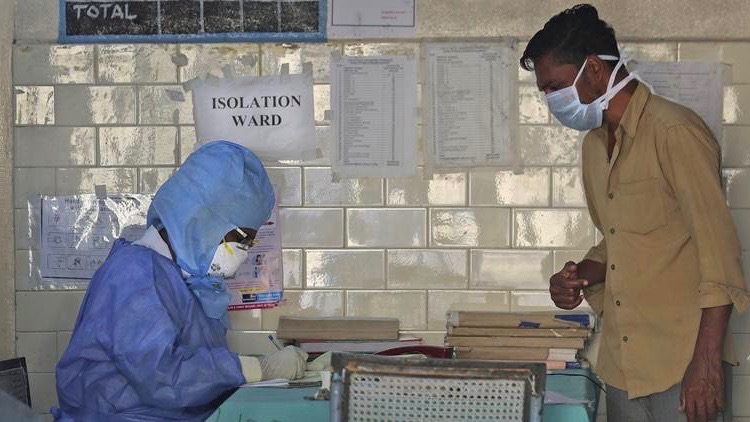A public hospital in Ahmedabad, capital of the Indian State of Gujarat, has been accused of segregating COVID-19 patients on the basis of their religion. The Ahmedabad Civil Hospital has reportedly arranged separate wards for Hindu and Muslim suspects of the infection. The hospital authorities have cited government orders as justification for the move.
There are around 180 suspected cases in the hospital, where 1,200 beds have been marked specifically for COVID-19. Gujarat is one of the worst affected States in the country, with more than 871 cases out of India’s almost 13,000 cases as of April 16. The State has recorded 36 of the total 429 COVID-19 deaths in India.
Responding to the charge, the Gujarat State health department denied that any such decision was taken and claimed that patients are being kept in different wards on the basis of their condition. India’s Ministry of External Affairs later accused the United States Commission on International Religious Freedom (USCIRF) of spreading “misguided reports” after a condemnation of the alleged religious segregation was issued on the USCIRF Twitter handle on April 15.
However, several independent media reports have verified the religious segregation of COVID-19 suspects at the Ahmedabad public hospital. On April 16, Sushant Singh, deputy editor of the Indian Express which broke the story, tweeted, “Even though the government has denied it, officials said that the segregation was done three days back following instructions from senior government officials.”
The hospital administration reportedly took the decision to segregate the patients after some of them felt “uncomfortable” staying with others from a different community. This may be viewed in the light of a vicious campaign being run by right-wing elements and media in India to give a religious color to the pandemic by citing cases from Muslim congregation that was held earlier in March.
Ahead of the sudden declaration of a nationwide lockdown on March 24, members of the Tablighi Jamat (a Muslim religious organization) had been returning from a congregation that was held on March 13-15. When the lockdown was enforced, many participants, who had not been able to leave, were stranded at the office of the organization in New Delhi. Later, members of the organization – some of whom had left and others who were stranded – were found to have the disease. This was used by Hindu supremacist groups in the country to run a campaign vilifying Muslims as “super-spreaders” of the infection.
In such a context, social media in India was and remains filled with hate messages against Muslims. Right-wing groups have been found to be propagating fake news through WhatsApp and other platforms, attacking Muslims. In the State of Himachal Pradesh, a young man belonging to the Muslim community committed suicide on April 5, reportedly to avoid harassment by neighbors.
Gujarat State has a history of religious persecution and violence against minorities. The State government and its agencies have been accused of being complicit in pogroms against Muslims. The current Indian prime minister Narendra Modi from the right-wing Bharatiya Janata Party was the Gujarat chief minister when thousands of Muslims were killed in Gujarat in the religious riots of 2002.





